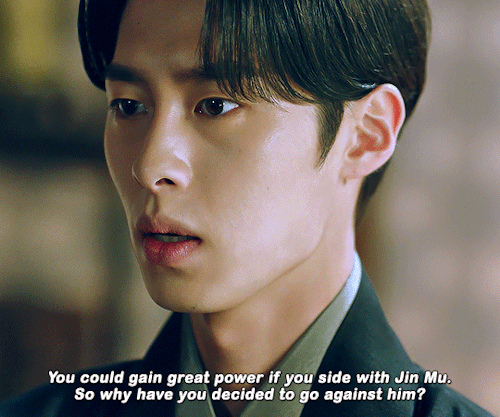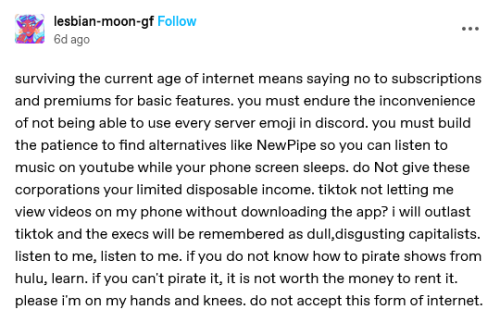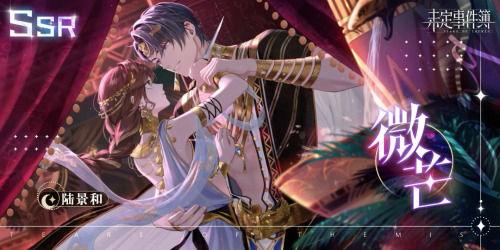Writing Description Notes:
Writing Description Notes:
Updated 9th September 2024 More writing tips, review tips & writing description notes
Facial Expressions
Masking Emotions
Smiles/Smirks/Grins
Eye Contact/Eye Movements
Blushing
Voice/Tone
Body Language/Idle Movement
Thoughts/Thinking/Focusing/Distracted
Silence
Memories
Happy/Content/Comforted
Love/Romance
Sadness/Crying/Hurt
Confidence/Determination/Hopeful
Surprised/Shocked
Guilt/Regret
Disgusted/Jealous
Uncertain/Doubtful/Worried
Anger/Rage
Laughter
Confused
Speechless/Tongue Tied
Fear/Terrified
Mental Pain
Physical Pain
Tired/Drowsy/Exhausted
Eating
Drinking
Warm/Hot
More Posts from Luace-ferareoftumbler and Others
Prompt #178
Write the story of a young child being named the next ruler of their Kingdom, despite not having any royal blood or being raised in a royal household.
I'd do the same lmaoo


ALCHEMY OF SOULS: LIGHT AND SHADOW 환혼 : 빛과 그림자 — 2022, dir. Park Joon Hwa
![a meme
first panel is someone looking at some text that says "i write and create a new character"
next panel the person blinks, and text next to them that says [three immersive daydreams later]
final panel the person opens their eyes surprised to see text that says "they’re now way more important to the story than before and have a complex backstory because i like them too much"](https://64.media.tumblr.com/735008f7aee659c0e81e24e969c8fc9e/a3d658b3aa21f9fc-17/s500x750/bf32788e4eb5f706fa390924b3e5218e3c61d10e.png)

No because- it’s them.
Writing Notes: Antihero

An antihero - a central character who lacks the characteristics an audience associates with a conventional hero.
They are ambiguous protagonists—complex characters who have a dark side.
Despite a flawed exterior, a history of bad decisions, and even a questionable moral code, an antihero is ultimately guided by good intentions.
Tips for Writing an Antihero
Despite their flaws, antiheroes are realistic characters that readers can relate to. Here are four tips for creating a great antihero for your story:
Create a main character who is complex. Think of how you would write a traditional hero. Create your antihero by giving them the opposite attributes. If a hero is an idealist, your antihero is a cynic. Make them mysterious so their character is revealed bit by bit. A great antihero has flaws just like a real person. But despite an antihero’s weaknesses, their good side is illuminated as the story progresses. These contrasting qualities make an antihero more complex and interesting.
Give your antihero internal conflict. Every great antihero has an internal struggle driving their actions. Before you begin writing, sit down and flesh out the character. What event is the source of their internal struggle that informs their behavior in the story? As you write, slowly reveal your antihero’s backstory to let readers know what makes them tick.
Don’t confuse your antihero with the antagonist. For the antiheroes with misguided morals, the ends justify the means. They can explain away the bad things they do if the result is ultimately good and they emerge a hero. When writing an antihero, you can bring them to the edge of evil, but they’re never as evil as the true villain of your story. Unlike an antagonist, an antihero ultimately believes they are acting for a noble cause. Some characters, like the DC Comics character Harley Quinn, alternate between being an antihero and an antagonist, depending on the context.
Use supporting characters. In the TV show The Sopranos, antihero Tony Soprano had his therapist, who showed Tony’s vulnerability and made the audience have a soft spot for a guy who ordered a hit as easily as he ate a bowl of pasta. Create a side character who can illuminate your antihero’s redeeming qualities. The best antiheroes are the ones readers can’t believe they’re rooting for.
Types of Antiheroes
Think about the rough-around-the-edges antihero Han Solo compared to the traditionally heroic Luke Skywalker. Antiheroes go against the grain and are often social outcasts who operate by their own rules. Here are different antihero archetypes found in fiction:
The pragmatic rebel: The pragmatic antihero is a realist. They might associate with both good guys and bad guys and take whatever action they deem necessary to accomplish their mission. Their morals are, for the most part, good, but they won’t hesitate to do what’s needed to be heroic—even if that means taking out a few bad guys. They won’t intentionally cross a line unless it’s for the greater good, and they may still follow the steps of the hero’s journey.
The unscrupulous antihero: This is the antihero whose morals fall into a grey zone. They have good intentions but are driven more out of self-interest rather than the greater good. They can be cynical and have a jaded view of the world. Their actions are often dictated by past traumas and inner conflict, revealed through their backstory. They don’t think twice about how they achieve their goal and who they need to push out of their way, and they sometimes even enjoy the dark side. Annaliese Keating, the antihero played by Viola Davis at the heart of the show How to Get Away With Murder, is cutthroat and morally compromised, but her motives begin to make sense as the audience gets a deeper look into her inner life.
A hero by any means necessary: The titular antihero protagonist of the television series Dexter (as well as the novel it’s based on, Darkly Dreaming Dexter by Jeff Lindsay), borders on being a villain. Antiheroes like Dexter Morgan justify their behavior because it results in something that benefits society, even though their actions are questionable—and sometimes even psychotic. For example, Dexter might have good intentions as a vigilante serial killer of other killers, but his deeds are those normally associated with an antagonist.
Example: Walter White
Walter White is the main character of the TV series Breaking Bad.
As a man dying of cancer, White begins to make and sell methamphetamine to save money to support his family after his death.
As the series progresses, Walter White’s character arc is dramatic as he moves through the ranks of antihero archetypes, crossing every moral line and almost assuming the role of villain.
Told from any other point of view, Walter White would be the antagonist of this series but instead he is an antihero.
Source ⚜ More: References ⚜ Writing Resources PDFs
In time travel movies, when the time traveler asks 'What year is this?!?' they're always treated like they're being weird for asking.
When in reality, if you go 'What year is this?!?' people will just say '2024. Crazy huh.' and you go 'Wtf where has my youth gone.'
And if you ask 'And what month??' people won't judge you, they'll just go like 'SEPTEMBER!!! Can you believe it?!?!' and you go 'WHAT?!? Last time I checked we were in May?!?'
*Yvonne writing*
Penelope: Hey Yvee! What are you writing?
Yvonne: A fanfic!
Penelope: Oh? About what?
Yvonne: You and Callisto, and the genre is romance
Penelope: wait- what?
Yvonne: Yeah, he commissioned me, I’m getting paid
Callisto: I told you to keep it a secret!
you know the drill, op disabled reblogs etc etc etc

“Teach me how to love you Because I don’t know how to do it. Moments like this I stay alone with something impossible to describe. For that reason I want to build a new world and I want just you next to me in that world. Teach me how to love you. Let’s define everything anew. Let’s invent a new language for ourselves and let’s confess our love to each other in that language that no one else knows. Teach me how to love you. And I will teach you about bravery… How countries and borders will collapse for the sake of our love. And now I’m saying the most painful thing of all; I write letters you’ll never read and day by day I lose my own essence on these lines. I don’t know also what will be left of me. You, me, love, separation, death, life? I beg you, teach me how to love you. I beg you Hilal, promise me a country where we will live and die together.”
— Leon








【未定事件簿】 Tears of Themis: Secrets of the Tomb SSR Translations
Event PV
Keep reading
-
 mamamia921 liked this · 3 weeks ago
mamamia921 liked this · 3 weeks ago -
 sacred3ugene liked this · 3 weeks ago
sacred3ugene liked this · 3 weeks ago -
 slightlyexpiredtangerine liked this · 3 weeks ago
slightlyexpiredtangerine liked this · 3 weeks ago -
 chaosandtwo liked this · 3 weeks ago
chaosandtwo liked this · 3 weeks ago -
 zypherion liked this · 3 weeks ago
zypherion liked this · 3 weeks ago -
 zypherion reblogged this · 3 weeks ago
zypherion reblogged this · 3 weeks ago -
 romaneecvnty liked this · 3 weeks ago
romaneecvnty liked this · 3 weeks ago -
 zukiluvspinkhairedgoddesses liked this · 3 weeks ago
zukiluvspinkhairedgoddesses liked this · 3 weeks ago -
 sopitadotjpeg liked this · 3 weeks ago
sopitadotjpeg liked this · 3 weeks ago -
 zereshq liked this · 3 weeks ago
zereshq liked this · 3 weeks ago -
 unashamedly-gross liked this · 3 weeks ago
unashamedly-gross liked this · 3 weeks ago -
 buzzyofthevanitys liked this · 3 weeks ago
buzzyofthevanitys liked this · 3 weeks ago -
 lacevillain liked this · 3 weeks ago
lacevillain liked this · 3 weeks ago -
 littlemonster-y2k liked this · 3 weeks ago
littlemonster-y2k liked this · 3 weeks ago -
 theodorka liked this · 3 weeks ago
theodorka liked this · 3 weeks ago -
 1ckyangel6 liked this · 3 weeks ago
1ckyangel6 liked this · 3 weeks ago -
 crying-ang3l liked this · 3 weeks ago
crying-ang3l liked this · 3 weeks ago -
 tmpestuous liked this · 3 weeks ago
tmpestuous liked this · 3 weeks ago -
 buckyys-babydoll liked this · 3 weeks ago
buckyys-babydoll liked this · 3 weeks ago -
 flowersforbucky reblogged this · 3 weeks ago
flowersforbucky reblogged this · 3 weeks ago -
 frosted-skies reblogged this · 3 weeks ago
frosted-skies reblogged this · 3 weeks ago -
 asterims liked this · 3 weeks ago
asterims liked this · 3 weeks ago -
 theenemiestoloversclub reblogged this · 3 weeks ago
theenemiestoloversclub reblogged this · 3 weeks ago -
 theenemiestoloversclub liked this · 3 weeks ago
theenemiestoloversclub liked this · 3 weeks ago -
 astroreoreoreoreoreoreoreo liked this · 3 weeks ago
astroreoreoreoreoreoreoreo liked this · 3 weeks ago -
 always-devon reblogged this · 3 weeks ago
always-devon reblogged this · 3 weeks ago -
 philiphii liked this · 3 weeks ago
philiphii liked this · 3 weeks ago -
 romanticizing-writing liked this · 3 weeks ago
romanticizing-writing liked this · 3 weeks ago -
 hyyih liked this · 3 weeks ago
hyyih liked this · 3 weeks ago -
 multivees liked this · 3 weeks ago
multivees liked this · 3 weeks ago -
 wendyvolare liked this · 3 weeks ago
wendyvolare liked this · 3 weeks ago -
 selfsfret liked this · 3 weeks ago
selfsfret liked this · 3 weeks ago -
 worm-wholes liked this · 4 weeks ago
worm-wholes liked this · 4 weeks ago -
 a-little-sad-but-super-rad liked this · 4 weeks ago
a-little-sad-but-super-rad liked this · 4 weeks ago -
 pr1ncess333 liked this · 4 weeks ago
pr1ncess333 liked this · 4 weeks ago -
 immortaltyrant2 reblogged this · 4 weeks ago
immortaltyrant2 reblogged this · 4 weeks ago -
 rustinpiss liked this · 4 weeks ago
rustinpiss liked this · 4 weeks ago -
 nostalgicpotter liked this · 4 weeks ago
nostalgicpotter liked this · 4 weeks ago -
 dulcae liked this · 4 weeks ago
dulcae liked this · 4 weeks ago -
 xxnightcorexx liked this · 4 weeks ago
xxnightcorexx liked this · 4 weeks ago -
 cieloyrosas liked this · 4 weeks ago
cieloyrosas liked this · 4 weeks ago -
 novacm liked this · 4 weeks ago
novacm liked this · 4 weeks ago -
 winwhenyoulose3-5 reblogged this · 4 weeks ago
winwhenyoulose3-5 reblogged this · 4 weeks ago -
 toastissuperior liked this · 4 weeks ago
toastissuperior liked this · 4 weeks ago -
 ssa-neeks-prentiss liked this · 4 weeks ago
ssa-neeks-prentiss liked this · 4 weeks ago -
 pigeon---milk liked this · 4 weeks ago
pigeon---milk liked this · 4 weeks ago -
 missgirlicous reblogged this · 4 weeks ago
missgirlicous reblogged this · 4 weeks ago -
 iamavibingpapaya liked this · 4 weeks ago
iamavibingpapaya liked this · 4 weeks ago

hello! my name is luace, also known as lucy. I absolutely find CONSANG people disgusting.If ur stalking because i told u to KYS then go on lmao.
45 posts